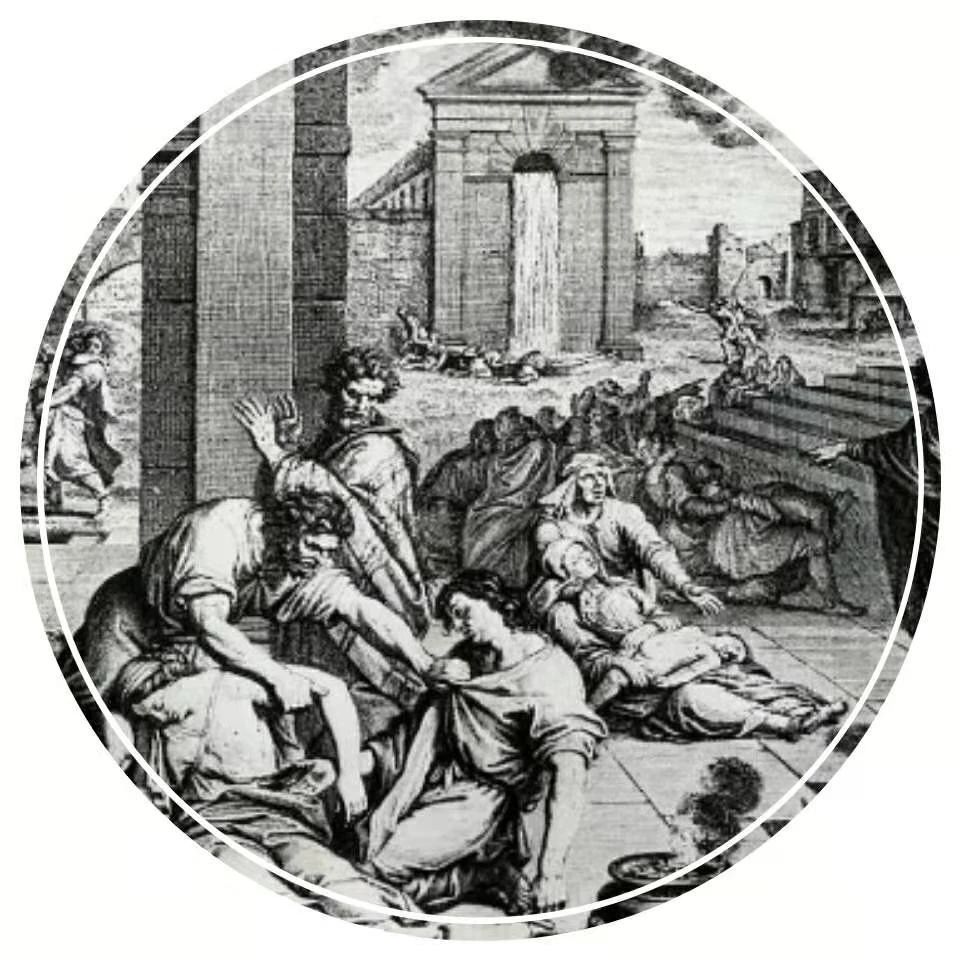How the Black death, which slaughtered more than 70 million people around the world, changed the history of Europe

The city became hell on earth, and pedestrians suddenly fell to the ground while walking in the street.
the Black Death (the great medieval plague of Europe) was like a skeleton legion, from the port city of Messina in southern Sicily in southern Italy to Genoa and the French Mediterranean port city of Marseilles in the 14th century. From Venice and Pisa to the heyday of emerald. Vienna, Paris, Czechoslovakia, Budapest, Munich, London, St. Petersburg. One historic city after another in Europe fell under the iron feet of the Black death Legion. The plague killed a total of 75 million people around the world. The scale of death is roughly the same as that of World War II, which had many steel machines.
first of all, the fragmentation of religious rights and the rise of modern science
in addition, people have finally figured out the mode of transmission of the Black Death, that is, pneumonic plague and bubonic plague, the former is transmitted through air, and the latter is transmitted through blood, and the former is more infectious. not only medicine but also law, public health, and urban planning all made great progress at that time.
the medieval church oppressed the people at that time all the time. Believers are demanding abstinence, conservatism, belief in God, going to heaven and looking forward to the afterlife. With the merciless slaughter of the Black death, more and more people pursue the satisfaction of reality and the essence and meaning of life. We no longer unconditionally dedicate our lives to life, but begin to explore what we should be and what we should be in life, and the rationality and sensibility in human ethics. To pursue equality and freedom.
Thomas Hobbes, a philosopher, and thinker of the European Enlightenment are influenced by liberalism. In his eyes, God has almost nothing to do with the world since the end of his creation. Since the ultimate goal does not exist, it is naturally wrong to think that mortals must move towards the perfection of virtue, which shakes the medieval asceticism rooted in the theory of benevolence, and people begin to advocate freedom and equality.
the collision of many trends of thought finally converges into a force at some point. Reformation, mercantilism, and Renaissance blossomed everywhere at that time, and the people of Europe finally stumbled to the entrance of modern civilization. and will become the cultural, scientific, technological, ideological and economic center of the world in the next five hundred years.
the mass death of people has caused great damage to the original social foundation. More than half of Europe has been reduced to purgatory. Nearly 1x3 of the total population has disappeared, of which the mortality rate of urban residents is as high as 50%. The slave market began to be tight, and because of the Black death, it opened the history of the bloody and cruel slave trade in Europe that lasted for hundreds of years.
Dress beloved in our collection of short red prom dresses . Here are the absolute perfect choice to make you dazzle!
whereas in Eastern Europe, because of the larger land area, the urban and rural areas are far apart and the population is sparse. Formed a natural isolation area, so the epidemic of the Black death is relatively mild, does not promote ideological change and social and economic development. This seems to be the unique advantage of Eastern Europe has become an important part of the Slavic nation lagging behind the West.
many historians regard the Black death as an important engine of social transformation and development in Europe. after the Black death, Europe has embarked on a different path than before, which is a brighter and smooth road, crushing the old social contradictions and creating a new pattern of social reform. Therefore, it not only promoted the development of science and technology but also broke the autocratic status of the Catholic Church, which had an important impact on the Renaissance, religious reform, enlightenment, and industrial revolution, thus changing the direction of the development of European civilization.